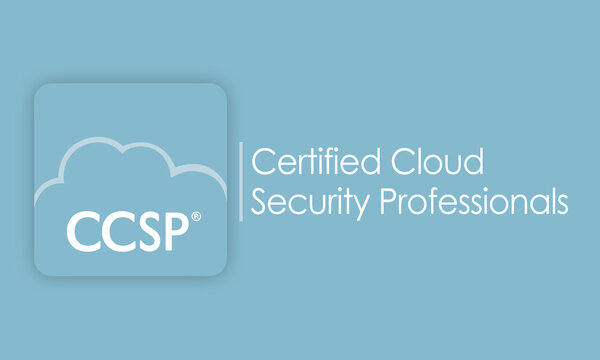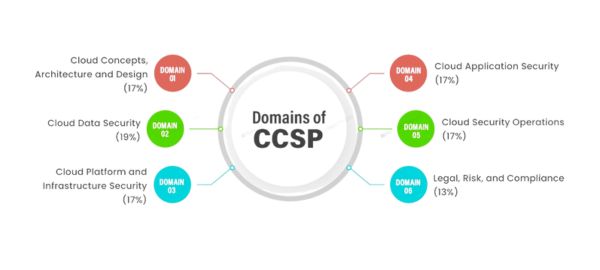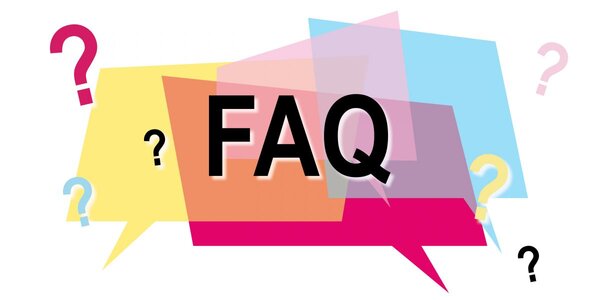If you work in information security and have a need to specialize in cloud security, achieving a CCSP may be a valuable investment. According to (ISC)², the average salary for a CCSP in the United States is $135,510. According to Glassdoor, the average compensation for cloud security analysts with or without a CCSP certification is $91,856.
If you’re new to cybersecurity but want to work in cloud security, the CCSP may be something to aim for as you gain experience and obtain more beginner-friendly qualifications like the CCSK.
Continue reading to learn more about CCSP requirements, exam expectations, how to prepare for certification, and get free CCSP Certification Questions if you determine it’s a suitable fit for you.
What is the CCSP certification?
The Certified Cloud Security Professional CCSP certification offered by (ISC)² is recognized as one of the most advanced cloud security certifications in the industry. It is specifically designed for individuals who already possess some experience in information technology (IT) and security and are looking to advance their careers in cloud-based cybersecurity.

Earning the CCSP certification serves as a powerful testament to potential employers, showcasing your technical expertise and knowledge required to effectively protect valuable assets in the cloud. More precisely, the CCSP indicates that you have advanced skills and expertise for designing, managing, and securing data, applications, and infrastructure in the cloud in accordance with industry best practices and procedures established by our globally recognized certified cybersecurity professionals. By achieving this certification, you validate your skills, open doors for career advancement, and gain access to a supportive community of cybersecurity leaders who are committed to assisting you throughout your professional journey.
As cloud technologies become increasingly prevalent in companies worldwide, there is a growing demand for cybersecurity professionals with cloud security expertise across various roles. Here are some examples of job listings on LinkedIn that either require or prefer candidates with a CCSP certification:
- Product security engineer
- Cybersecurity solutions architect
- Application security architect
- Cloud security engineer
- Information security auditor
- Compliance technology specialist
- Information security manager
What do you need to satisfy the CCSP requirements?
To become a Certified Cloud Security Professional, you need to fulfill specific CCSP requirements and pass a certification exam that evaluates your understanding of cloud security topics. Here’s an overview of the CCSP exam, as updated in 2022:
|
Certification |
CCSP |
|
Cost |
$599 (US) |
|
Number of questions |
150 |
|
Item format |
Multiple choice questions |
|
Time to complete |
4 hours |
|
Passing grade |
700 out of 1,000 points |
|
Prerequisites |
5 years of professional experience in IT (3 years must be in information security and 1 year must be in one of six (ISC)² CCSP Common Body of Knowledge (CBK) domains |
|
Testing locations |
Pearson VUE testing centers |
|
Available languages |
English, Chinese, German, Japanese, Korean and Spanish |
|
Average CCSP salary (US) |
$150,400 |
|
Maintenance requirements |
$100/year, 90 CPE/3 year |
To be eligible for the CCSP exam, (ISC)², the certification body, mandates a certain level of experience. You must have at least five years of paid job experience in the field of information technology. Out of these five years, three years should be in the information security domain, and at least one year should be in one or more of the six domains of the CCSP CBK:
Domain 1. Cloud Concepts, Architecture and Design
Domain 2. Cloud Data Security
Domain 3. Cloud Platform & Infrastructure Security
Domain 4. Cloud Application Security
Domain 5. Cloud Security Operations
Domain 6. Legal, Risk and Compliance

It’s important to note that full-time experience is calculated on a monthly basis. To count as one month of work experience, you need to have worked a minimum of 35 hours per week for four consecutive weeks. Part-time experience should exceed 20 hours per week but not exceed 34 hours. The equivalencies are as follows:
- 1040 hours of part-time = 6 months of full-time experience
- 2080 hours of part-time = 12 months of full-time experience
Paid or unpaid internships can also be considered, but you must obtain documentation from the company confirming your internship status. If you are interning at a school, you can give paperwork on the registrar’s stationery.
In addition, the Cloud Security Alliance’s (CSA) Certificate of Cloud Security Knowledge (CCSK) can substitute for one year of experience in one or more of the six CCSP CBK domains. Furthermore, (ISC)²’s Certified Information Systems Security Professional (CISSP) credential can be used to fulfill the entire CCSP experience requirement.
If you currently lack the required experience, you have the option of becoming an Associate of (ISC)². This entails successfully passing the CCSP exam. As an associate, you will have a six-year timeframe to accumulate the necessary five years of experience. Part-time work or internships can also contribute to fulfilling the experience requirement.
By understanding these CCSP standards and options, you can plan your path toward achieving the CCSP certification.
How long does it take to study for the CCSP?
The amount of time required to prepare for the CCSP exam can vary significantly depending on your chosen study method and your IT and IT security experience. Some students have dedicated as much as 300 hours to studying, while others have managed to prepare in just two weeks. Thus, the effort you put into your studies will directly impact your preparation timeline.
The CCSP exam focuses on knowledge and encompasses six distinct domains. While practical experience is valuable, it is advisable to allocate extra time for exam preparation.
Prepare for the exam
There are various approaches you can consider based on your learning style and personal commitments. Here are a few options:
- Exam prep course: Several companies offer training specifically tailored for the CCSP. Although this option may incur additional costs, a structured learning environment can be beneficial for individuals who thrive in such settings.
- Practice tests: Taking practice exams before the actual test allows you to identify areas that require further attention. Additionally, it helps build confidence by familiarizing you with the exam format. (ISC)² provides an official set of practice tests with over 1,000 questions, but you can also find other resources online and in print.
- Study groups: Learning alongside peers can be an enjoyable way to stay motivated as the exam date approaches.
-
Classroom-based: Classroom-based learning techniques will necessitate your actual presence as well as the traditional classroom and teacher setup. This will almost probably be of interest to you, particularly if you reside near a convenient training venue and during the time a session is being provided.
Tips for CCSP exam success
Here are some tips to increase your chances of success on the CCSP exam:
- Register for the exam to set a target date that aligns with your other commitments. Choose a realistic timeframe that allows ample preparation.
- Allocate a consistent amount of time each day for studying, even if it’s as little as 15 minutes. Regularity is key to accumulating knowledge over time.
- Remember that there is no penalty for incorrect answers on the CCSP exam. Utilize the process of elimination and make your best guess when necessary.
- You have the option to flag questions and return to them later. Keep in mind that you have a three-hour window to complete the exam, which equates to approximately 90 seconds per question.
5 steps to earn your CCSP
Before embarking on your journey to obtain the CCSP certification, it is crucial to assess whether it aligns with your career aspirations. This step is often overlooked, especially for those without a security background. Regardless of your background, take some time to envision yourself in the coming years and determine if a career in security, particularly cloud security, is what you desire.
To earn the CCSP certification, you need to meet certain requirements and follow a specific process established by (ISC)². Here are the steps to obtain the CCSP certification:
-
Earn adequate work experience
Prior to pursuing the CCSP certification, you must have relevant work experience in an IT role. If you do not currently meet these prerequisites, you can become an official associate of (ISC)². After passing the CCSP exam, you have a six-year window to obtain the required five years of work experience through full-time or part-time employment, internships, or other professional engagements. Alternatively, you can work towards the CCSP certification while earning the Certificate of Cloud Security Knowledge (CCSK), which can be equivalent to one or more years of experience in one of the six security domains recognized by (ISC)².
-
Agree to the (ISC)² code of ethics
Once you meet the minimum experience requirements, you become eligible to proceed with the CCSP exam. As part of this process, you must agree to abide by the (ISC)² code of ethics. This code emphasizes the importance of maintaining cloud security protocols, conducting oneself with integrity, and advancing the role of security professionals within the IT industry. By adhering to this code, professionals uphold a high standard of conduct and contribute to a more trustworthy and secure digital environment.
-
Pass the CCSP test
After agreeing to the (ISC)² code of ethics, you can begin preparing for the CCSP exam. Once you feel adequately prepared, you can register for the exam by creating an account and selecting a testing site. The exam covers knowledge from the six security domains recognized by (ISC)², as mentioned earlier.
-
Receive an (ISC)² endorsement
Upon successfully passing the CCSP exam, you will need to complete an online endorsement application. This application must be endorsed and signed by an (ISC)² certified professional who can vouch for your professional knowledge, skills, and reputation in the field. If you do not personally know an (ISC)² certified professional, the organization may endorse your application.
-
Pay the annual maintenance fee
Once your endorsement application is accepted by (ISC)², you will finalize the certification process by paying the organization’s annual maintenance fee. If you already hold an (ISC)² certification and are an existing member, this fee may not be required. After completing the payment, you will officially become CCSP certified.
By following these steps and fulfilling the requirements, you can successfully obtain the CCSP certification, validating your expertise and commitment to cloud security.
FAQs

Is the CCSP exam hard?
The CCSP test is considered more demanding than the CCSK but less difficult and in-depth than the CISSP. There are no penalties for incorrect responses, and all questions are multiple-choice. It is a difficulty that can be met with proper preparation and testing methods.
Is CCSP entry-level?
Because CCSP requires job experience, it is not considered an entry-level certification. Consider starting with the IBM Cybersecurity Analyst Professional Certificate, CompTIA Security+, GIAC Information Security Fundamentals (GISF), or the Systems Security Certified Practitioner (SSCP) if you’re new to cybersecurity.
How many people have the CCSP?
According to (ISC)², as of October 2022, 12,280 IT professionals hold a CCSP qualification. As a result, it is the highest-ranked certification for IT workers.
What are the differences between CCSP vs CISSP?
If you have several years of cybersecurity expertise, you may be selecting between the CCSP and the Certified Information Systems Security Professional (CISSP), two recognized security credentials from (ISC)².
Which path you take will be determined by your degree of experience and your professional objectives. While the CCSP needs five years of experience, the CISSP requires ten years of cumulative experience, which may be a barrier if you’re still in your early career.
The CSSP focuses particularly on cloud security, whereas the CISSP covers cybersecurity themes more widely (and may be useful for a broader range of employment).
Learn more about CCSP vs CISSP – Which Certification Should You Choose?
Final Words
In brief, the CCSP certification standards are intended to guarantee that individuals have the essential knowledge and expertise to flourish in the field of cloud security. Meeting the CCSP requirements provide a high bar for industry experts, requiring at least five years of total work experience in information technology, including three years in security and at least one year in one of the six domains of the CCSP CBK.
Only after demonstrating knowledge and technical abilities for building, administering, and protecting apps, infrastructure, and data on a cloud platform can you become a Certified Cloud Security Professional. You must also be prepared to put in place the industry’s best practices, rules, and processes to ensure the greatest degree of security feasible.

PCCN vs CCRN: Which Certification Should I Take?
In this discussion, we will examine the fundamental distinctions between PCCN vs CCRN certifications, allowing you to make an informed and right decision about which certification is best for your nursing career progression.
June 20, 2023

Is PCCN Worth It? A Comprehensive 2025 Study Guide
In this article, we will provide all the enrollment criteria, how to apply, whether is PCCN worth it for you to obtain, and how to get a high mark.
June 20, 2023

PCCN Requirements - How to Become a Progressive Care Certified Nurse?
To become a progressive care nurse, you must first obtain the PCCN certification. This post will help you understand PCCN certification, PCCN requirements, and efficient approaches to obtaining this certification.
June 20, 2023

